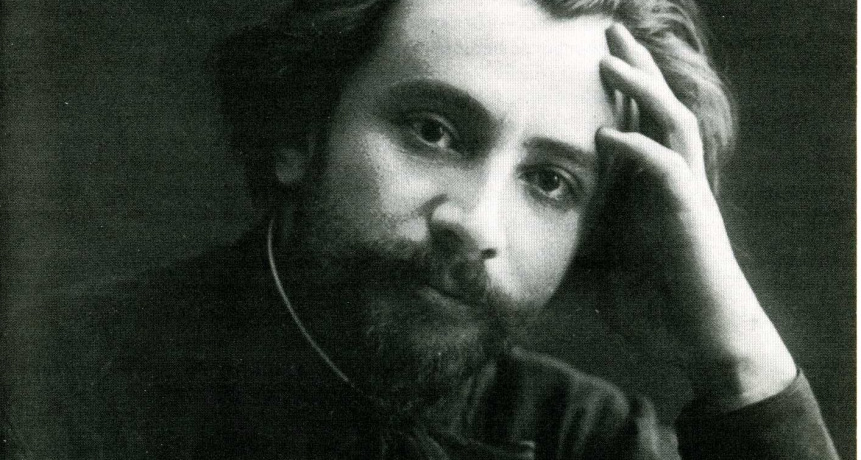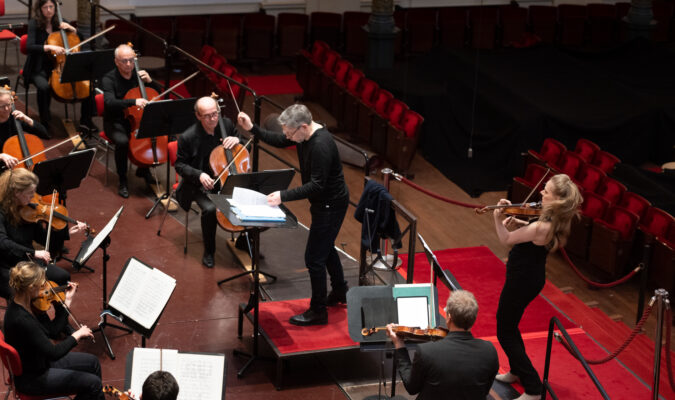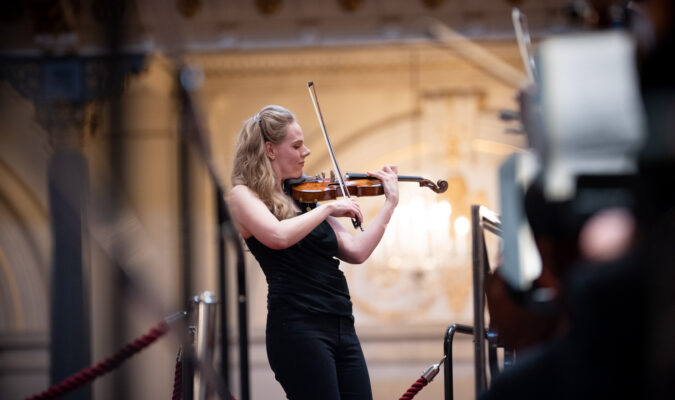Roslavets' 1st violin concerto
6 March 2021: Simone Lamsma plays the Dutch premiere of Nikolay Roslavets' First Violin Concerto. Roslavets? An introduction not to be forgotten.
In 1927, the Russian Revolution was ten years old. At a festive concert in Leningrad, the Second Symphony 'To October' by Dmitri Shostakovich, the Iron Foundry by Alexander Mosolov and the cantata October by Nikolai Roslavets were performed.
Shostakovich's name has remained familiar. He became known as one of the 'good composers' who resisted the 'dictatorship of the proletariat' as best they could. Mosolov is half forgotten, although his Iron Foundry is still sometimes heard as an example of brutal 'proletarian' music. But Roslavets? For decades Soviet papists have tried to erase every trace of him, like a baba jaga wiping away the traces of her copper kettle. And they almost succeeded. The composer who was a key figure in Russian musical life a hundred years ago, who published magazines and played an important role in the State Publishing House and the Association for Contemporary Music, did not appear in Russian reference books until Gorbachev's days. He simply did not exist in the card indexes, nor did he appear on concert programmes. "Would you please pay me for the Potpourri on Russian themes for balalaika, which you received from me some time ago", Roslavets wrote desperately to the Composers' Union in 1939. That letter proves, sadly enough, how a prominent composer can be destroyed.
The Russian roaring twenties
Before the Russian artistic life was smeared under a thick layer of red paint in the 1930s, art was flourishing in Moscow and Saint Petersburg, and even in smaller cities 'in the province'. One sought to connect with the Italian Futurists, performances of Wozzeck by Alban Berg or Der Sprung über den Schatten by Ernst Křenek: nothing was impossible. This was the colourful world of the painters Malevich and Chagall, the theatre maker Meyerhold, the writers Babel', Bulgakov and Mayakovsky. Composers like Stravinsky, Prokofiev and Glazunov had fled the country, whether temporarily or not, allowing a whole new generation to shape musical life in the 1920s: Artur Lourié, Alexander Mosolov, Nikolay Roslavets, Gavriil Popov, Dmitri Shostakovich...
Wrong choice
Roslavets, however, made the 'mistake' of associating himself with the ideas of Stalin's opponent Lev Trotsky, the man who would eventually be murdered by a secret agent at his escape address in Mexico in 1940. That alone was reason enough for the authorities to literally silence Roslavet. Much of his music was lost when his flat was cleared by 'right-wing' communists after his death in the summer of 1944. The score of his First Violin Concerto from 1924 was only found in 1989.
Skrjabin - and where to go from here?
The late work of Nikolai Skrjabin, who died in 1915, was certainly his starting point, but Roslavets tried to create some 'order' in the musical language that was moving further and further away from classical harmony. He did this by shaping his harmonies and melodies with the help of what he called 'synthetic chords': constellations of complex chords that determined the contours of his music. In this way, he tried to bring together his melodies and harmonies into a single system.
Roslavets' First Violin Concerto
Roslavets' First Violin Concerto is a mature elaboration of his constructional ideas, which he had already developed in the 1910s. This is a full-blooded solo concerto, in which you can hear the effervescence of the early Shostakovich and Mosolov in the sometimes angular rhythms, but also a rich harmonic language as developed by the Pole Karol Szymanowski. The work is exciting, but never pathetic.
No double meanings
Many people have tried to find secret messages in Shostakovich's oeuvre - sometimes very justifiably, sometimes in a questionable way. There are no double meanings in Roslavets, but there is an excellent solo concerto, which according to some is on a par with Alban Berg's Violin Concerto. He avoided the ecstasy of the late Skrjabin. But what a piece. Time for an introduction - after more than 95 years the Dutch premiere!
Sibelius' Seventh Symphony and a Violin Concerto by Roslavets
Concertgebouw, Amsterdam
NTR Saturday Matinee, 6 March 2021, 14:15 hours
live on NPO Radio 4
Radio Philharmonic Orchestra
Olari Elts - conductor
Simone Lamsma - violin
SIBELIUS Seventh Symphony
ROSLAVETS First Violin Concerto






